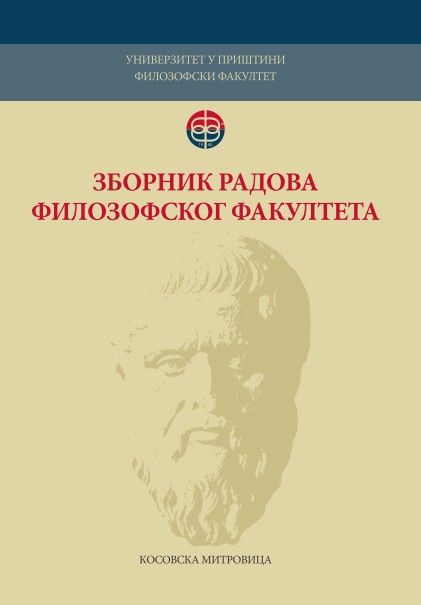Још један осврт на футур у енглеском језику
English future tense revisited
Author(s): Aleksandra RadovanovićSubject(s): Language studies, Language and Literature Studies
Published by: Филозофски факултет, Универзитет у Приштини
Keywords: future; English; tense; modality; factual
Summary/Abstract: Tense is the typical grammatical marker of the semantic category of temporality. However, there is rarely a clear-cut distinction among temporal, aspectual and modal meanings. As tense and modality are closely related and greatly intertwined in the case of future time reference, the theoretical status of the future tense has been the object of a long-standing debate. In this regard, the perennial question Has English a Future Tense? has attracted considerable attention. Although will clearly belongs to the modal system, it has been subjected to twofold treatments: either as a marker of modality or a marker of the future tense. Yet, the debate is far from coming to an end. Therefore, we have set out to reinvestigate the status of this tense form with the aim to emphasise its modal character. We revised the commonly discussed objections against the view of will as a future tense auxiliary summarised as follows: Conceptual argument. Human cognition and the complicated ontological status of future events give rise to fundamental epistemological differences between the future on one side and the past and present on the other. Formal argument. English is a clear example of the language with a grammaticalised past vs. non-past opposition as it does not have morphologically marked future tense. Diachronic argument. The evidence on the origin and development of the future tense provides further support to the claim that the future tense is a matter of modality. Will has developed from a lexical verb with the meaning want and the future tense is not a fully grammaticalised verbal form. Pluralism of the devices. Future time reference is highly heterogeneous area in English and includes: modal auxiliaries, semi-modals and modal idioms, and present tense forms. Polyfunctionality of the future tense. It is a polysemic verbal form that renders all three types of central modal meanings: dynamic, deontic and epistemic. Will and would pairing. The proponents of the future tense in English take the view that will+inf. is a temporal Category and typically make distinctions between the pure/neutral and the modally nuanced future tense. The reasons behind establishing this tense category can be summarised to include: a high frequency of occurrences, neutral time reference, lack of additional adverbials needed for the time reference and reference to the future as clearly not linked with the present. On the other hand, the study confirms that will+inf. belongs to the modal category due to the following: the syntactic and semantic arguments do not provide support that this is a tense category, the future time epistemologically differs from the past and present so that future time utterances are by default non-factual and non-factive. Hence, the future tense is only one device used for future time reference in English that is not to be included within the tense system.
Journal: Зборник радова Филозофског факултета у Приштини
- Issue Year: 48/2018
- Issue No: 1
- Page Range: 3-21
- Page Count: 19
- Language: Serbian

